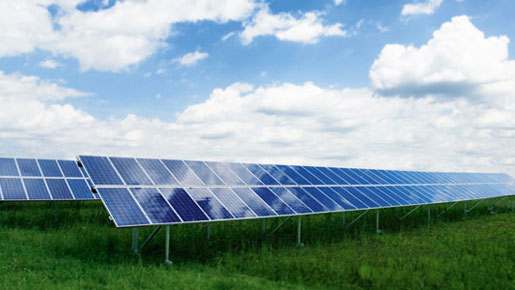
Bavaria’s environmental technologies sector is large. Its more than 7,000 companies employ 55,000 people and had revenues of 11.6bn euro in 2008, reports a study released in July by Munich’s authoritative IFO economic institute.
The EET sector’s impact is even larger. It gives the state of Bavaria the tools to sustain its admirable track record of growth. One of the most exciting chapters in this long-running story is being written in this year, in which surging industrial production and investment made the second quarter one of the best in recent economic history and pushed unemployment down to a Germany-best 4.2 percent.
These tools include a sustainable and domestic supply of fuels. Renewable and other domestic sources are increasingly taking the place of imports of ever-scarcer (and always polluting) fossil fuels.
Prime among these renewables: photovoltaic (PV). Bavaria accounted for 40 percent of the PV capacity installed in 2009 in Germany. And Germany, in turn, was responsible for more than 50 percent of the world total. It’s no wonder why Horst Seehofer, Bavaria’s Minister-President, calls the state: Solar land number one.
With this track record and bearing in mind that the key equipment, components and services required to create and install the PV and other solar-based electricity generation systems were developed and are being manufactured and rendered in the state, it’s no wonder that the company lead managing the 400bn euro Desertec project selected Munich to be its headquarters.
The largest renewable energy project ever instituted, Desert, will supply Europe with 15 percent of its electricity by 2015.
Other renewables in which Bavaria is Germany’s leader:
– Hydraulic – longtime specialty of the state, thanks to dams placed on the rivers thundering down from the Alps;
– Geothermal – in which heat from subterranean layers of water is harnessed to produce electricity and warm buildings;
– Biomass – in which organic wastes are turned into a potent and non-use conflicting biofuel.
In addition to Munich, the three major hubs of EET development in Bavaria are Augsburg, home to the state’s 100 member-strong Environmental Cluster, plus the state’s center of ET competence and a dedicated incubation facility.
Furthermore, Nuremberg offers a wide range of institutions like the Energy Technologies Cluster. The Free State of Bavaria also laid the foundation for the city’s Energy Campus last year.
Based in the central Franconian tech- city, Erlangen is the renewable energy division of Siemens, which has turned itself into the number one player in the offshore wind power market.
The surging profits figures being turned in 2010 by BMW, Audi, Linde, MAN, Wacker and other Bavarian manufacturing giants are attributable to the successes being enjoyed (as shown by Bavaria’s stellar exports figures) on world markets by their products.
These earnings are also, however, attributable to these and other state companies’ ever-greater efficiency of energy and other resource use. Many of the technologies enabling them to get an ever-greater amount of output out of these resources (while dramatically cutting or even obviating emissions) stem from the state’s ultra-innovative EET sector.
Key facts: Bavaria vies with Baden-Wurttemberg for being the most innovative region in Europe, based on the number of patents granted. And 63 percent of the Bavarian companies receiving patents are in the ET sector, reports the ifo study.
Many of the newest patents awarded are in the key field of e-mobility, and are for the light-gauge, ultra-strong materials (from the state’s powerful materials engineering sector). The revolutionary propulsion systems (developed at the state’s top-ranked universities and by its world-famous research institutes and technology-driven companies) set to make this environmental-friendly form of transport the predominant way of getting around in the next decade.

